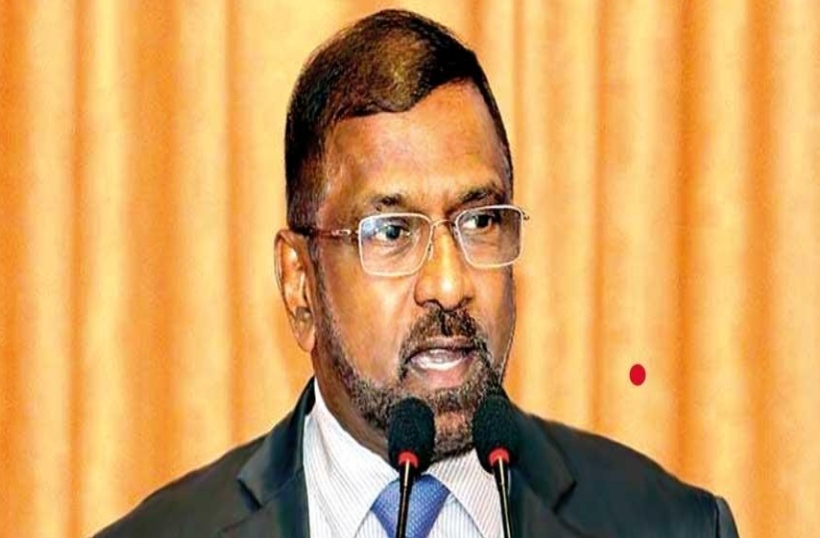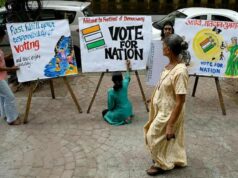Time ripe for deviation from Western-oriented foreign policy

Foreign Secretary Admiral Prof.Jayanath Colombage
Newly appointed Foreign Secretary Admiral Prof.Jayanath Colombage spells out the foreign policy of the Government of Sri Lanka (GoSL). He spells out how the Government will reconcile competing interests of China and India, and how Sri Lanka can have healthy ties with other countries including Pakistan and Bangladesh.
Excerpts:
Q We came across media reports quoting you that the foreign policy of the new Government would be Asia-centric. What do you mean?
We have experienced a very difficult period in our country. That is COVID-19. It was unprecedented. We were not ready for it. We felt that the international system was not there for us whenever there was a situation like a pandemic. Instead, it’s our neighbours who are coming to us first. That is our immediate neighbourhood or even beyond. We are in the 21st century. We see a clear shift in the world economic order from the west to the east or Asia for that matter. Therefore, our main focus should also be on neighbourhood- South Asia, Africa, the Middle-East, ASEAN and Far East. We were a British colony for a long time. We have maintained a non-aligned policy since independence. We also see that we have been having somewhat of a Western-oriented diplomacy. We venerate the West virtually. Even in the Foreign Ministry, there are special grade appointments. Most of these appointments are in Western capitals. It isn’t a sacrosanct one. There is a perception that these postings to western capitals are superior. It is a kind of a norm. President Gotabaya Rajapaksa thinks otherwise. He says the best and the most dynamic ones in the Foreign Service should be here in our neighborhood, in the Middle-East, Bangladesh, Africa and ASEAN. This is the policy shift that we advocate. This is on par with the President’s thinking and the changing global dynamics. It is in economic sense. This is based on what is best for Sri Lanka. Our foreign policy should not be tailored to what is best for another country. It should be tailored for what is best for Sri Lankans and Sri Lanka. COVID-19 has served us with a wake-up call to revisit our past on foreign policy.
Q When you mention Asia, we know China and India have competing interests in the region. How do you reconcile relations with them?
It is right. Both these countries are in Asia. China is the second largest economy in the world and India is considered the sixth largest. In 2018, India was the world’s fastest growing economy. That means we are between two economic giants. How we benefit from both is diplomacy or the art. That is why the President mentioned that as far as strategic security is concerned, Sri Lanka will always have an India-first approach. That means Sri Lanka will not do anything harmful to India’s strategic security interests. As far as economic development is concerned, we cannot depend on one country. We are open to anyone. We know China is one country willing to invest and develop. They have the capacity to do it. We have to benefit from it. We have to balance.
The President has outlined a few specific things. Sri Lanka should be a neutral country. Sri Lanka does not want to be caught up in the power game. Sri Lanka wants to develop friendly international ties with everybody. Sri Lanka should have Sri Lanka-first policy. These are the five areas we have to navigate. If we can do it successfully, we
can balance anyone.
“This is on par with the President’s thinking and the changing global dynamics. It is in economic sense. This is based on what is best for Sri Lanka. Our foreign policy should not be tailored to what is best for another country. It should be tailored for what is best for Sri Lankans and Sri Lanka. COVID-19 has served us with a wake-up call to revisit our past on foreign policy”
Q Certain sections of the Indian society, particularly the Indian media, view economic investment projects by China as a security threat. They see the Hambantota Port and the Colombo Port City projects as threats to their security. How do you allay such fears?
You mentioned two projects. These are major investments for the country. The Hambantota Port is located at the most strategic point in the Indian Ocean. That is the centre of the ocean. It is exactly in the centre between Singapore and Dubai, and Shanghai and Rotterdam as far as the distances are concerned. The busiest shipping lane in the world is just 12 nautical miles south off Hambantota. That is the shipping lane conveying 50 percent of world containers, 35 percent of bulk cargos and 72 percent of energy- gas and oil. We need a port there.
Everyone knows, we initially offered it to India. India did not undertake it for whatever the reason. May be it was because of lack of capacity. Or, they could not take that decision at that moment. Then, it went to a Chinese company.
Now, we have given 85 percent stake of that port to China Merchant Port Holding Company. That should be limited to commercial activities only. It is zero for military purposes. Sri Lanka cannot afford, should not afford and will not afford any particular country to use Sri Lanka as a staging area to do anything against another country- especially so India.
Q At a critical security situation can we do it?
Of course, we can. We are an independent, sovereign nation. If any warship arrives in Sri Lanka, there is a procedure. They have to write to the Foreign Ministry first. Then, the Foreign Ministry writes to the Defence Ministry. The Defence Ministry approves and informs the Navy. Then, the Navy ensures security. Any warship arrives in Sri Lanka only with our authority. If somebody comes by force, that is war. We have to separate commercial activities from strategic and security activities.
Q As the Foreign Secretary and formerly as the Additional Secretary to the President, you would have engaged with China many times. Does China understand Sri Lanka’s position?
China really understands it. I have not seen China pushing for strategic things. But, China is pushing for commercial things. We need Foreign Direct Investment, joint ventures, Built, Operate Transfer (BOT) projects, technology transfers etc. China understands the strategic situation here. China also understands it isn’t ethical to push Sri Lanka beyond a certain point that is worrisome to India. China understands that stable Indo-Lanka relations are good for China. The relationship we have with China, Japan, the United States and European Union or any other country are purely on commercial, interests.
” We are in the 21st century. We see a clear shift in the world economic order from the west to the east or Asia for that matter. Therefore, our main focus should also be on neighbourhood- South Asia, Africa, the Middle-East, ASEAN and Far East. We were a British colony for a long time. We have maintained a non-aligned policy since independence. We also see that we have been having somewhat of a Western-oriented diplomacy”
Q Do you see a clear policy change from the Indian side as far as the Sri Lankan situation is concerned?
In 2015, India feared that we had moved towards China too much. Probably, India wanted that regime to be changed. India was happy that the regime was changed. What happened afterwards made India happy. We had given the Hambantota Port on a 99-year-lease to China Merchants Port Holding Company, which India, Japan and America considered as wrong. We actually made India jittery during the period between 2015 and 2019. But India is comfortable with President Gotabaya Rajapaksa.
Q India asked for a stake in the Easter Container Terminal (ETC).What is your view?
India didn’t ask it from this Government. There is a MoU signed in 2017 between India, Sri Lanka and Japan. The present President is committed to honour it because it is an arrangement between the two countries. The only thing is that there is opposition to it from port workers. The president, the chairman of Sri Lanka Ports Authority and other stakeholders are studying it thoroughly. They will find a solution. India has a solid argument on this. Actually, 38-40 percent of transshipment containers we handle arrive from India. About 70 percent of businesses we handle are from India. Colombo port is the second biggest port for Indian containers after Jawaharlal Nehru Port Trust in Mumbai. They argue that they should have a stake in this issue as a result. Yet, they don’t have the capacity to build and operate the terminal. Therefore, they have linked with Japan to do it. The President has said that he is ready to honour that agreement. As per the new guidance of the President, no national asset is given with total control to any country. It means at least 51 percent of stake will always remain with the GoSL, and the balance can be divided.
Q In your Asia-centric foreign policy, there is another tricky area- that is to manage relations with India and Pakistan. Both the countries are trying to reach out to Sri Lanka. How do you manage relations with them without compromising the interests of one against the other?
In South Asia India and Pakistan are encountering problems. Both have been our friends. Both have helped us during very difficult times. During the war time, we almost lost the north to the operation launched by the LTTE. It was Pakistan which sent us MBRL (Multi-barrel rocket launchers). Pakistan was using them in their operational areas. The Pakistani authorities removed them and airlifted them to Sri Lanka. That only prevented Jaffna from being overrun by the LTTE. That is something great! We should stay away from this issue. We should not allow Sri Lanka to be used by one party against the other. Both the countries are important to us. India is our neighbour.
“How we benefit from both is diplomacy or the art. That is why the President mentioned that as far as strategic security is concerned, Sri Lanka will always have an India-first approach. That means Sri Lanka will not do anything harmful to India’s strategic security interests. As far as economic development is concerned, we cannot depend on one country. We are open to anyone”
Q How do you view relations with Bangladesh?
Bangladesh is the sleeping tiger in South Asia. It is the fastest growing country in terms of the GDP. We have the unique advantage. We are in the SAARC region. We are in the BIMSTEC. Bangladesh has huge potential. That is why the President has very clearly stated that we should pursue relations with Bangladesh. The best and most effective Foreign Service person should be posted to Bangladesh.
Q What is going to be the future of Millennium Challenge Corporation (MCC) agreement?
I’m not in a position to give a full commentary on it. We all know that there was a committee appointed by the President to study the MCC. The committee has forwarded its submissions. That committee has raised many issues regarding national interests. We need to find answers to these queries. I think the report will be submitted to the new Cabinet. The new Cabinet will be expected to make observations for each ministry. Once that is done it will be referred to Parliament and probably debated on for a compromise. I don’t know which
compromise that would be.
Q You talk about an Asia centric policy. The West is where Sri Lanka’s export destinations are located. Also, we find certain groups operating in the West lobbying against Sri Lanka on human rights issues. How do you respond?
The relationship with the whole world is important. The U. S. and European Union are our leading export markets. Yet, Asia has the potential to be the next developing world. In South Asia, we have a large population. If you take the Indian Ocean, one-third of the world population lives here. Populations mean markets. Our economic model needs to be changed. We have an import–dependent economy. We should become an export–led economy. This transition does not take place targeting the West only. It can be the Middle-East, South-East Asia etc.
“Bangladesh has huge potential. That is why the President has very clearly stated that we should pursue relations with Bangladesh. The best and most effective Foreign Service person should be posted to Bangladesh”
Q But, you have to face human rights allegations in the West.
These allegations are totally unjustifiable. We also believe in the fact that these accusations do not help reconciliation. Rather, it tries to divide us. We don’t want anyone to hold a sword against us. We believe in the fact that reconciliation cannot be achieved by force. It has to evolve from society. Defending ourselves against these allegations is not our target.
Q What is your target?
It is economic development.



